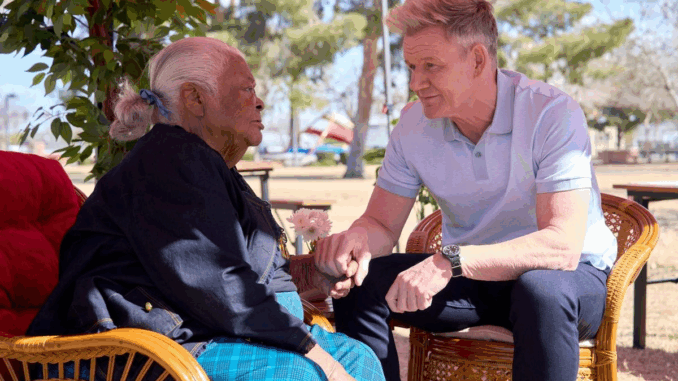
Gordon Ramsay is best known for his insults, rage, and scathing takedowns. But if you think Kitchen Nightmares was just about drama and broken freezers, think again.
Because what most viewers didn’t see were the stories after the cameras stopped rolling—the quiet victories, the family businesses saved, and the people who credit Gordon not just for fixing their food, but for giving them a second chance at life.
Behind Every Failing Restaurant, a Family on the Brink
When Ramsay walked into those failing establishments, the restaurants weren’t the only things falling apart. Many were family-run operations teetering on the edge of bankruptcy. Marriages were crumbling. Generations of effort were about to disappear. Children watched their parents break down in the very businesses they hoped to inherit one day.
And while the show captured the fights and breakdowns, it rarely captured what came next.
After Gordon left the building.
The Chef Who Didn’t Leave Them Behind
Unlike many hosts of “makeover shows”, Ramsay didn’t always walk away once filming wrapped. In numerous cases, he followed up weeks—or even months—later. Some struggling owners received unexpected phone calls. Others were connected with Ramsay’s professional team for real, hands-on business coaching.
One couple, who had all but given up on their small-town diner, later revealed that Gordon sent them new kitchen equipment quietly, without ever broadcasting it. Another owner said he helped her secure a loan she couldn’t get on her own.
And in some cases, when everything had failed—even after his visit—Ramsay reportedly offered employment opportunities to staff who had nowhere left to go.
These aren’t stories made for TV. These are private moments of impact.
It Was Never Just About the Food
Sure, the moldy walk-ins and defrosted fish made for great television. But Ramsay was always more focused on people than menus.
He taught owners to lead, not just cook. He mended family communication. He helped distant fathers and overwhelmed mothers find confidence again.

And while his methods were loud, at the core, they were about restoring dignity. You could see it in the way a once-hopeless chef stood a little straighter by the end of the episode. Or how a teenage son, once silent and resentful, finally looked at his father with respect.
For Ramsay, the kitchen was just the entry point. The real work was always emotional.
Some Didn’t Survive, But Many Did
Yes, some restaurants eventually closed. The economy, local demand, and lingering problems sometimes proved too much. But even in those cases, many owners said they were still grateful—because Ramsay had taught them something bigger than survival.
He showed them how to take control. How to stop making excuses. How to demand better for themselves.
And many took those lessons into future ventures—stronger, smarter, and more prepared to succeed.
The Firebrand With a Heart
Gordon Ramsay will always be known for his fury. But the stories behind Kitchen Nightmares reveal a man far more complex—a man who can be cruel in the moment, but fiercely compassionate in the long run.
He doesn’t just shout to be heard. He shouts because he cares. Because he knows failure, and because he refuses to watch people sink without trying to pull them up.
So the next time you see Ramsay slam a plate down in frustration, remember: somewhere, off-camera, he may already be helping rebuild someone’s dream.
Quietly. Completely. And without asking for thanks.